Fall 2022 newsletter
Andy Perry, Tanzania
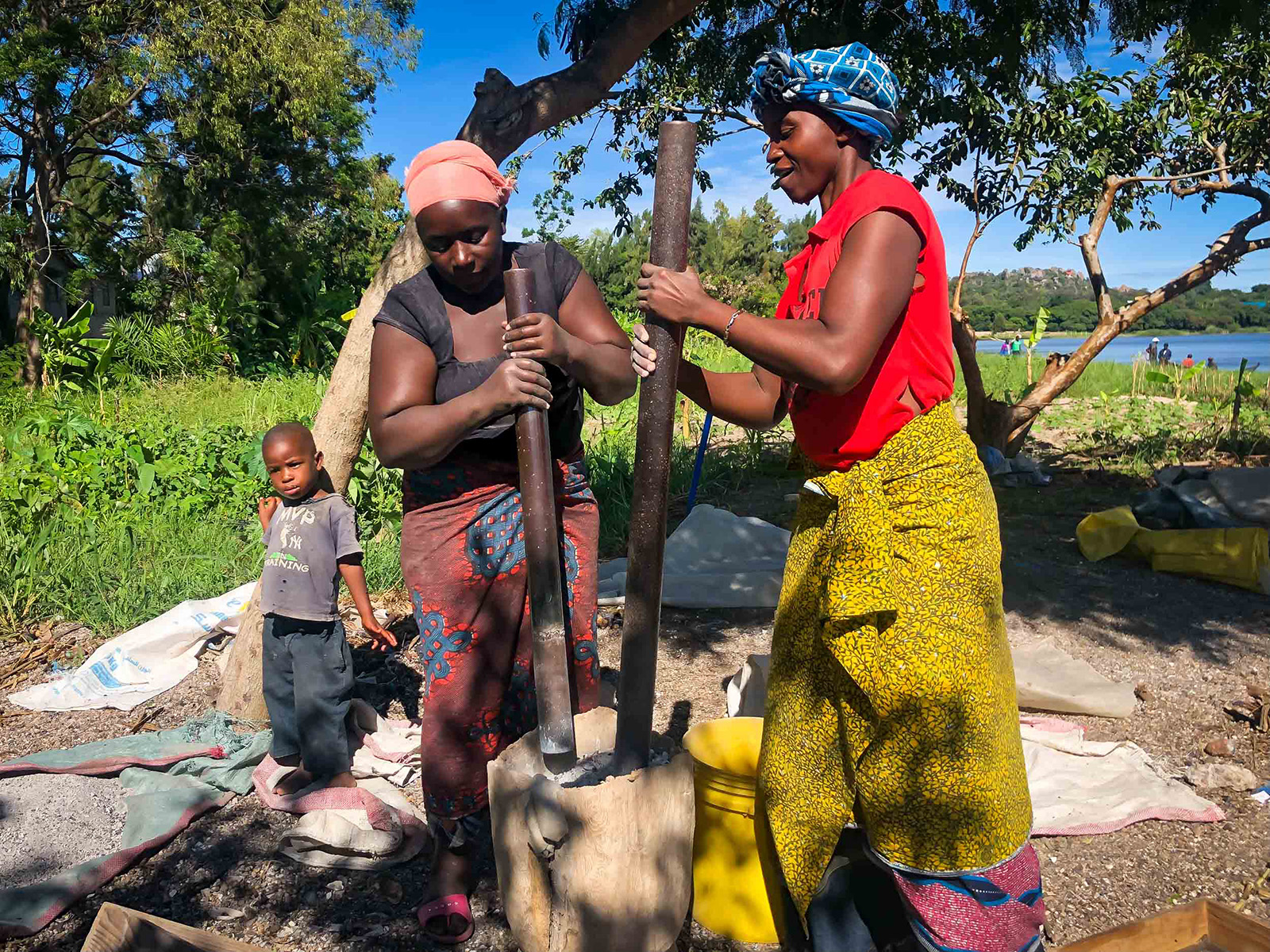
Women working together in Mwanza, Tanzania. Photo by Jerry Fleury.
When I was asked to reflect on Maryknoll Lay Missioners’ new cross-cutting focus on nonviolence, my initial thought was, Well, I don’t have anything to say about that — there is not much violence here in my corner of the world in Musoma, Tanzania, at least not that I’ve ever seen.
But after some reflection, I realized that maybe that is the point. Maybe trying to implement nonviolence here isn’t what the Maryknoll focus really means; maybe it means learning from all the nonviolent ways that are already so well in place here to be able to take them back to the States. Maybe it should really be about trying to learn the peaceful ways of our “mission countries” to be able to bring back as much as possible to our homeland.
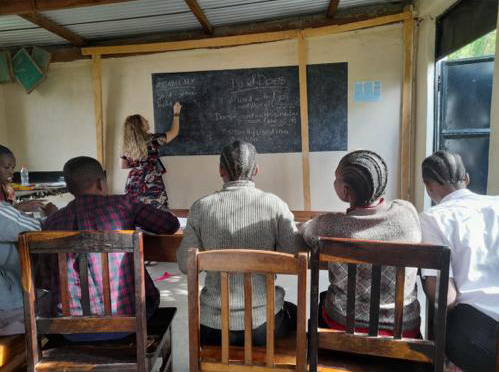
Andy teaching English at Rosemiriam Dagg Centre in Musoma.
When I think about life here in small-town Tanzania, it feels so peaceful: People are always greeting everyone on the streets with respect and love. They look out for one another and get worried when someone doesn’t show up to church on Sunday. It feels kind of how I always imagined life in the U.S. might have been back in the 50s and 60s when you could really go ask your neighbor for some sugar for the cake you were baking (or flour for the ugali).
Everyone looks out for one another here, and the level of trust between people that have never even met before is unmatched — like when a young mother is getting on a crowded dala dala (public mini-bus) and hands her baby to someone already sitting there; it’s just assumed that the person will hold the baby for the duration of the ride.
My first thoughts about nonviolence are always toward the extreme side of the spectrum — beatings, stabbings, shootings, etc. I think about Martin Luther King Jr., Rosa Parks and Thurgood Marshall. How they were such heroes, but I struggle to find ways to follow their example in my life and in my situations. I think a more realistic and tangible way to adopt a nonviolent perspective, especially in our everyday lives, is through speech. The way we speak — to ourselves and to others — affects so much of our lives.
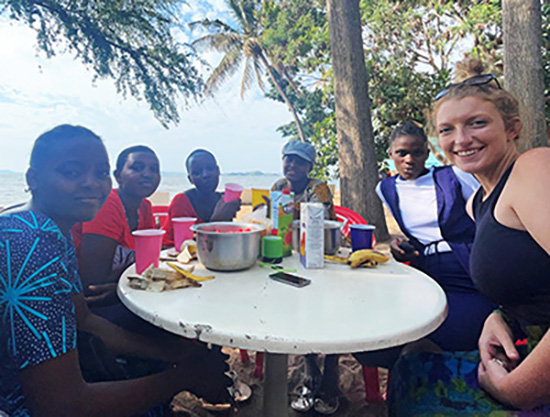
With Rosemiriam Dagg students at Lake Victoria
“Death and life are in the power of the tongue; those who choose one shall eat its fruit,” says the Book of Proverbs (18:21). Spreading lies and participating in gossip is very easy to fall into and bring others with you. Statistics say we speak about one fifth of our entire lives (time.com). That is a lot of opportunity to either spread love or spread hate.
During World War II, a saying warned people, “Loose lips sink ships.” Basically, if you accidentally tell the enemy information, you are as good as dead. This is a good way to visualize what God is telling us and how seriously we need to contemplate what we say — not only in public but in private too.
Especially in today’s world, there are so many different methods of communication — social media, text messaging, email, at home, in church, etc. Cyberbullying has, unfortunately, become a very real and common problem among our youth. Sixty percent of people under the age of 18 say they have witnessed online bullying (dosomething.org). This is a form of violence that is taking place every day in a very real form. Paying attention to what we say on and offline is super important to the goal of creating a nonviolent world.
Instead of thinking of all the terrible violence that goes on in our world and the extremely daunting task of how to combat those horrific things, why don’t we take a look inward — to ourselves and what we can do in our everyday lives to simply make our corner of the world a better, more peaceful place to be.
A good way to start would be trying to learn from our friends in countries like Tanzania, who are truly striving to love our neighbors as ourselves.
Peace,
Andy Perry

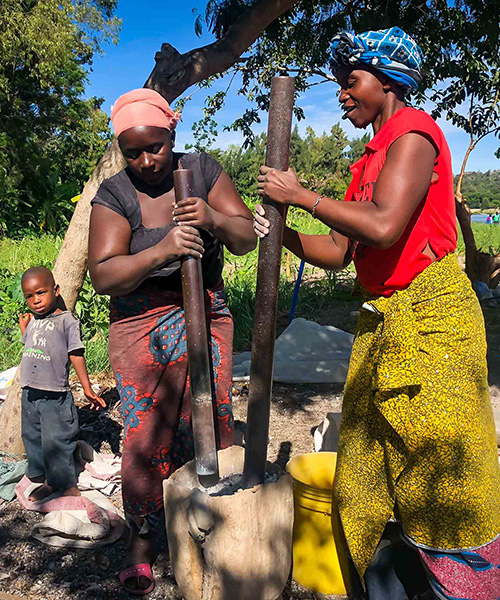


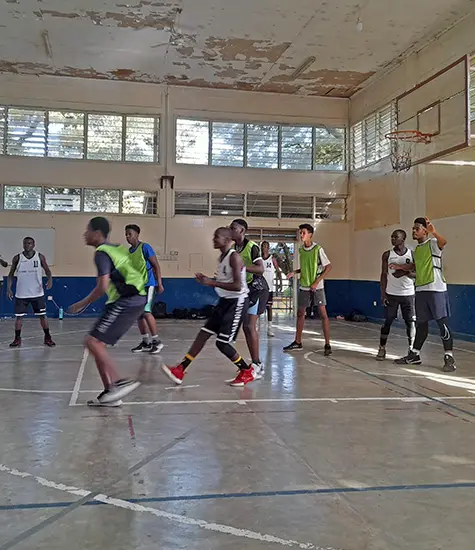
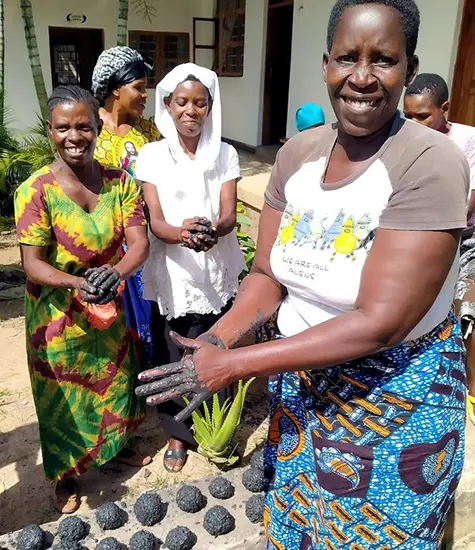




Thank you Andy for sharing your experience from the heart!